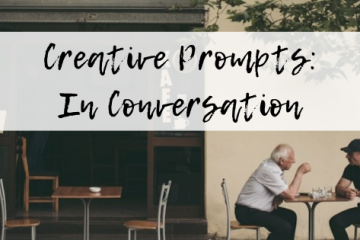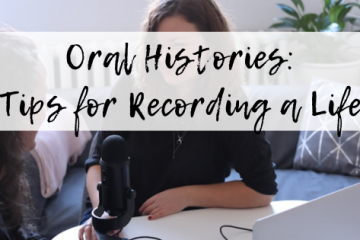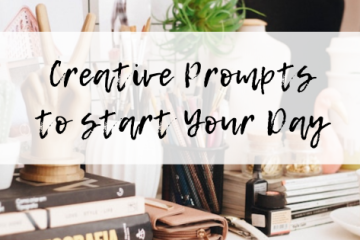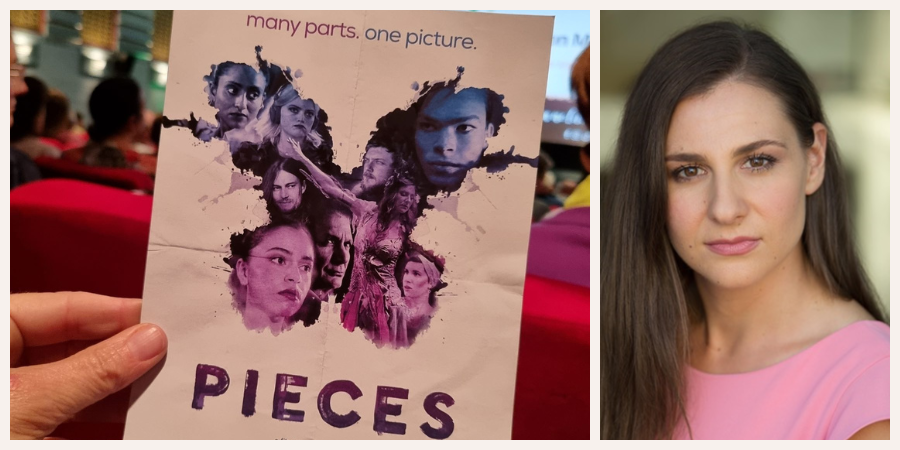
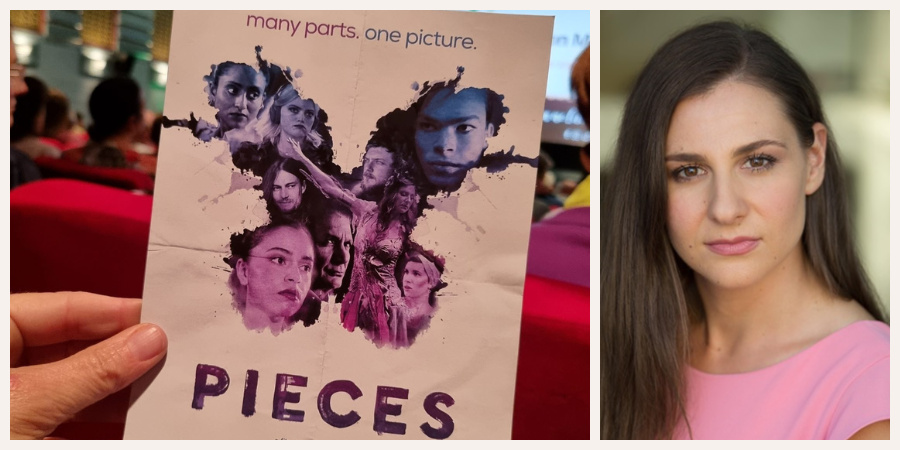
In August of this year, I took my daughter to Cinefest Oz in Busselton, an annual celebration of Australian film making. It was both an opportunity to spend time together and the chance for her to support some of her acting mates, who had recently landed roles in a couple of feature films.
One of those films was Pieces, which centres around a group of interconnected people living with mental illness, and who undertake an art therapy class that transforms not only their lives but the life of their teacher.
The film offers a compassionate and nuanced exploration of mental illness, both for those who experience it and those who care for them. It is an ultimately hopeful story without covering over the reality of that lived experience.
While at Cinefest, I had the opportunity to meet the film’s writer, Monique Wilson, who also plays the role of Alicia, the art teacher. In a six-degrees-of-separation kind of connection (more like two!), we discovered that the person who introduced my daughter to acting was the same one who helped Monique discover her passion for the performing arts.
It was wonderful to be able to chat to Monique about Pieces, writing and the things that inspire her.
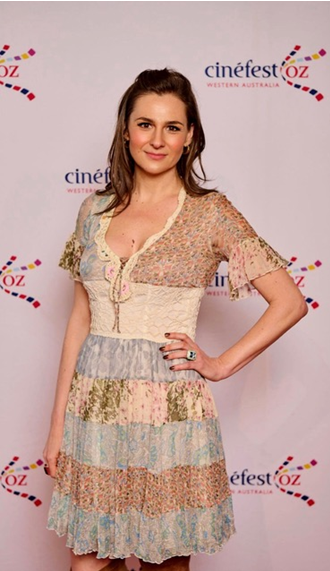
Writing
How/when did you discover that writing and/or performing was something you wanted to do/loved doing, and which came first?
When I was seven years old, I was asked to get up and do a scene as Potiphar’s wife. I had always been cripplingly shy but when I got on stage something just burst out of me. People started laughing, I had no idea what I was doing that was funny but the experience was magical; it was the moment I fell in love with acting.
My relationship with writing doesn’t have an origin story. It feels like it’s always been a part of me, but I was 17 when wrote my first play. It was something I didn’t know I had in me until I was challenged to try it.
To what extent is your writing and acting separate or intertwined?
I always write to perform. Whether it be for me or someone else, I am writing with the production in mind. When I was at school I felt there were no really exciting parts for girls. I wanted to play the ‘fun’ parts like Fagin or the Pirate King, so I started writing female parts that embodied that spirit.
That aside, I find the craft of acting and writing completely different. For me they require a compete shift in mindset and physical being. Writing is to live in your ‘mind palace’ as Sherlock would call it, whereas performing is to ‘get out of your head’ and be in the moment.
Where do you write and how often?
I wish I could say in an ‘ergonomic chair’ with my back upright and my shoulders back … However, recently I have been doing that terrible thing of writing in bed or worse on the couch. Wherever it’s warmest!
I have pretty much trained myself to write anywhere. When I have ideas I have to write them down. When I was working retail I would write notes on little bits of paper and stuff them in my bra!
When my son was young I had to change my writing habits. I come from a long line of night owls. My mother still stays up late working or painting and is known for her 2 am cheese sandwiches.
What keeps you creating?
A sense of urgency … It feels constantly like something I have to do almost like I don’t have a choice. There are so many stories that live inside of me, and I feel compelled to get them out. I also love to create things for performers to give them an opportunity to do something they haven’t had a chance to do. That personal connection to actors often drives the direction of a script. When I am writing, I’m also often thinking of someone I love who will be in the audience. I will be writing a particular joke or moment that I know they will love.
What do you do when you are working on a project but don’t feel creative?
Don’t feel creative … as in can’t solve a problem in a story? For that I find you have to get out and use the other side of your brain. Go to a football match, hang out with friends or play a board game with the family. I think living life is often the answer to writing. I will find myself hanging out with people and something with happen that subconsciously solves a problem in a story.
Pieces
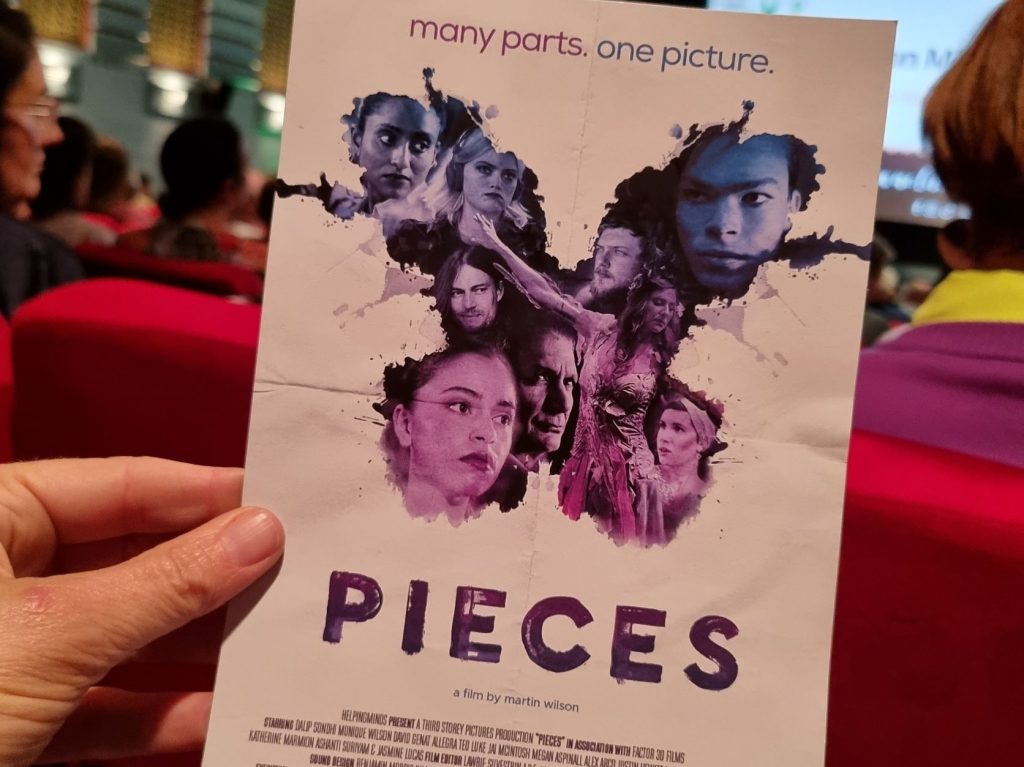
What was the motivation and/or inspiration behind Pieces?
It was a real tapestry of ideas and motivations from many different directions. I am privileged to know people with unbelievable stories and several of those people have lived with mental illness. The value of these people in my life has been priceless.
This film aims to break stigmas associated with mental illness, and I think one of the most damaging aspects of mental illness is self-stigma. Once diagnosed, people can feel that they no longer have anything to offer, and society too often views them this way too—as a burden. But in my life I’ve seen the greatest moments of selfless love and wisdom from the people who have been through trauma.
Pieces began as a short film—tell me about the process involved in writing Pieces as it developed from that original concept into a feature film.
It was a long evolution. The project began with an entirely different film script, which I was then asked to develop into a series that fell apart when Covid first hit. I then wrote a short film for the budget we still had. However, the director’s passion for the project drove him to want to extend it into a feature. So he asked me to write an extra 40 pages in 2 weeks. We continued to write and workshop through the filming and then after principal photography. It was a real puzzle to assemble it and bring it all together so that it made sense.
Tell me about the collaborative nature of developing the characters in the film.
Lots and lots of research and interviews. Mental illness is such a vastly complex and personal topic. There is as many different experiences of it as there are humans. So I did my best to try and understand as broad a collection of stories as I could. As a writer you hope that in fusing a collection of truthful experiences into each character you will end up with a story that everyone can relate to in some way.
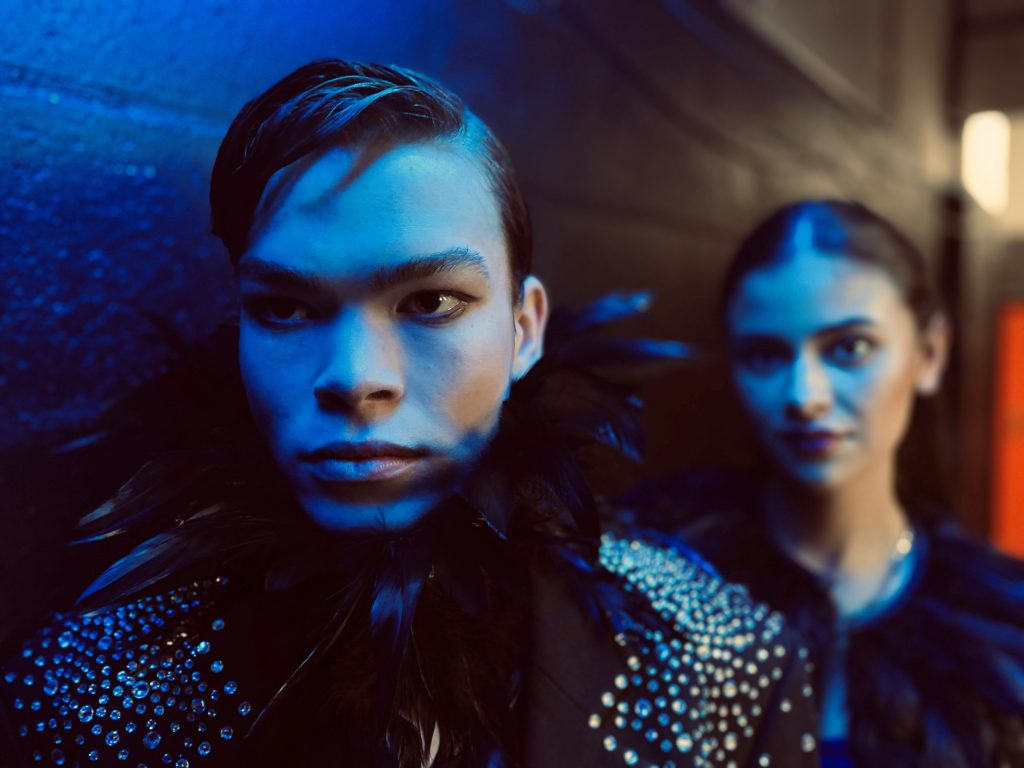
Which character did you have the most fun creating? Why?
Oh Raj – for sure. I got to give him all my best lines! I got to go to town on creating some epic moments for him and it was wonderful to see the very talented Dalip Sondhi bring him to life.
Which character is most/least like you? Why?
Not to be trite but there is ‘piece’ of me in each of the characters. It’s one of the great things about writing fiction. You can hide little bits of your life into characters and I think that in itself is its own kind of therapy. Every character in this film is discovering some creative pursuit that is helping them process their inner world.
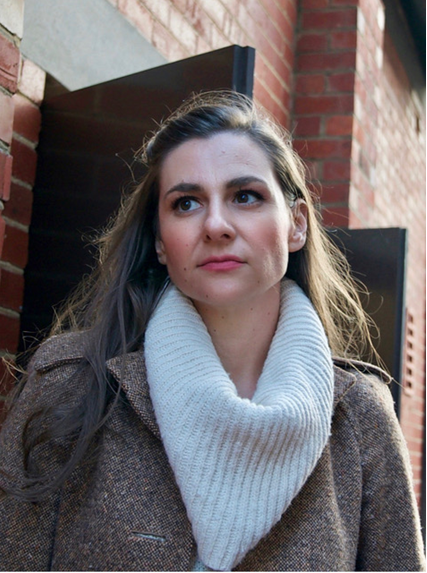
What do you hope will stay with people once they’ve finished watching Pieces?
I think that is probably best summed up by the opening line “I think mental illness can happen to anyone.” I think it’s important to try and treat others how you would want to be treated. You never know when you may need a little extra care. Life is full of valleys and mountains, so I believe offering people compassion and grace is how you keep community flowing.
What’s next (if you are able to say anything)?
I have another script entitled Panthera, which I wrote with the director of Pieces, Martin Wilson. He is currently working with the producer to raise the finance needed to get it made. I also have a couple of theatre shows I would love to re-shape and maybe produce next year.
A Few of Your Favourite Things
Who inspires or has made a difference in your life and why?
My Great Auntie Ethel. She is the living definition of a positive attitude. I have no idea how she is still standing. I tell her she is held together with masking tape and string. At 90, Eth still makes you feel like the most important person in the world and what’s amazing is she does that for every member of our family.
If you could write a letter to your 12-year-old self, what would you say to her?
I’d ask her to write down all the things that are important to her. To keep a book with her hopes and dreams in, and pictures of her favourite things. I’d ask her to keep that book safe because in 30 years’ time, she will be delighted to see that she still loves and cherishes all those things.
What book has had a lasting impact on you and why?
The Magic Faraway Tree by Enid Bylton. My mother read it to me many times as a kid and everything about it captured my imagination. Still to this day we use the term ‘Saucepan Man’ to describe a friend that hears the wrong word. “Do you want a Port?” you will ask, and they respond with “What? You want me to build you a fort?”
Any final words for other creatives?
Probably the advice/ words I need to give myself. Value your time and what you contribute. Just because what you do is ‘creative’ doesn’t mean it isn’t work—it’s still important.
Pieces is in cinemas now.
Watch the trailer:
To see where you can see Pieces—in Perth and regional WA, as well as in NSW and Victoria, head to the film’s website.

